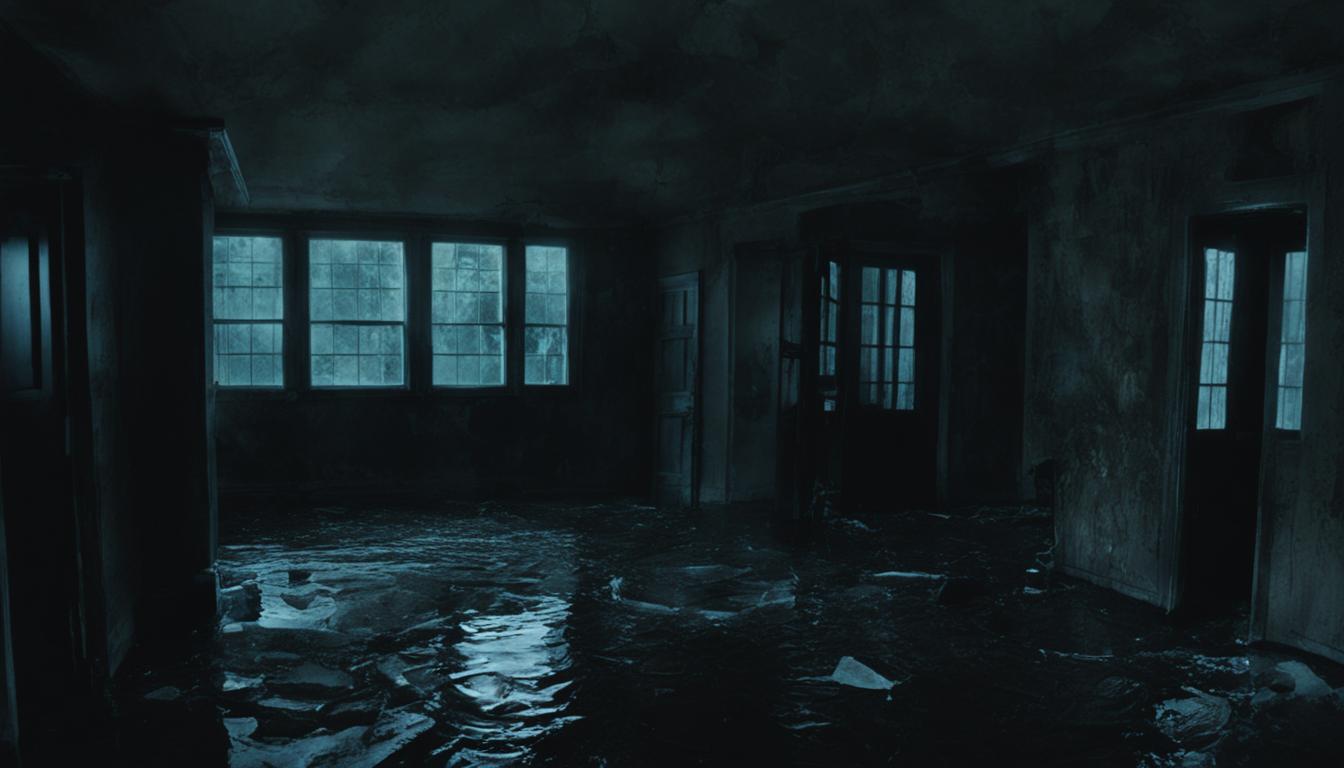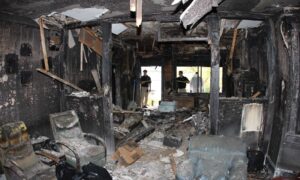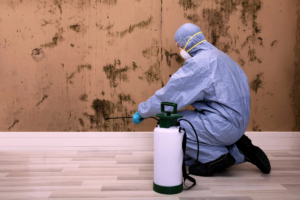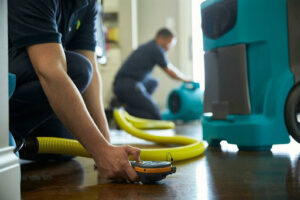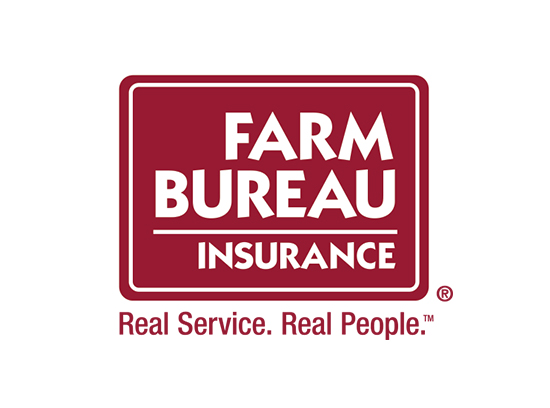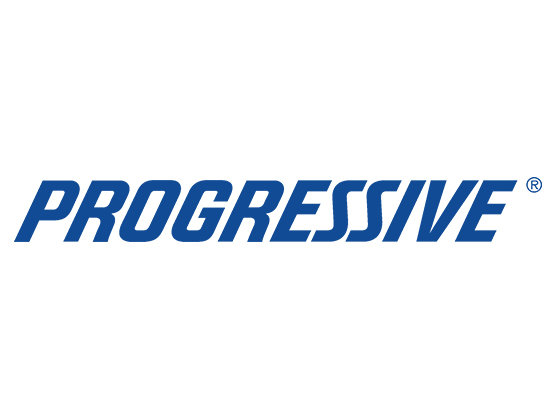If your house has recently suffered water damage, you may be wondering whether it is safe to sleep there. Between the potential for mold growth, structural instability, and electrical hazards, there are various risks to your health and safety that you need to consider.
In this article, we will explore the dangers of water damage, assess the safety of a water-damaged house, and provide you with valuable precautions and mitigation measures to create a safer sleeping environment.
Key Takeaways
- Water damage can pose several risks to your health and safety, such as mold growth and structural instability.
- Before sleeping in a water-damaged house, assess its safety by considering factors like the extent of the damage, presence of mold, and overall structural integrity.
- Precautions like proper ventilation, protective gear, air purifiers, and mold remediation strategies can create a safer sleeping environment in a water-damaged house.
- Your health and safety should be a top priority when deciding whether to sleep in a water-damaged house.
- When dealing with significant water damage, seeking professional help is recommended.
Understanding the Dangers of Water Damage
Water damage may pose several risks to your health and safety, making it essential to understand the potential dangers associated with staying overnight in a water-damaged house.
One of the most significant health risks associated with water damage is the potential growth of mold. When moisture is present, it creates an ideal environment for mold growth, which can cause respiratory problems and allergic reactions if not properly addressed.
Additionally, water damage can compromise the structural integrity of a building, making it unsafe to occupy. Electrical hazards may also be present, increasing the risk of shock or fire.
In summary, the dangers of water damage in a house cannot be underestimated, and it is crucial to take all necessary precautions to protect your health and safety. Employing mitigation measures such as proper ventilation, wearing protective gear, using air purifiers, and implementing mold remediation strategies can go a long way in minimizing the risks associated with water damage.
Assessing the Safety of the Water-Damaged House
When assessing the safety of a water-damaged house, several key factors need to be considered. First, you need to evaluate the extent of the damage. Is it limited to a small area, or has it affected multiple rooms in the house? The more significant the damage, the greater the potential danger.
Another significant safety aspect to consider is the presence of mold. Mold can cause a range of health issues, including respiratory problems, allergies, and headaches. If you suspect mold growth, it is essential to take proper precautions before staying overnight in the house. Wear protective gear and use air purifiers or dehumidifiers to reduce the concentration of spores in the air.
It is also crucial to evaluate the potential contamination of materials in the house, such as carpets, upholstery, and other porous surfaces. These materials can absorb water and become a breeding ground for bacteria, mold, and other harmful substances. If it is impossible to remove or clean these materials thoroughly, it is best to replace them.
Finally, you need to assess the overall structural integrity of the house. Water damage can compromise the stability of walls, floors, and ceilings. If you notice any signs of structural damage, such as cracks, bulges, or sagging, it is best to consult a professional before staying overnight.
Assessing the safety of a water-damaged house can be a complex process. By evaluating the extent of the damage, the presence of mold, potential contamination of materials, and the overall structural integrity, you can make an informed decision about whether it is safe to stay overnight. Always prioritize your health and safety and seek professional help when dealing with significant water damage.
Precautions and Mitigation Measures
When it comes to sleeping in a water-damaged house, taking precautionary measures is crucial to your safety and well-being. Here are some essential precautions and mitigation measures to consider:
| Precautions | Mitigation Measures |
|---|---|
| Proper ventilation: Keep doors and windows open to increase airflow. | Air purifiers: Use air purifiers to improve indoor air quality and reduce harmful particles in the air. |
| Wearing protective gear: Wear protective equipment such as gloves and face masks to reduce the risk of exposure to contaminants. | Mold remediation: Implement mold remediation strategies to prevent mold growth and remove any existing mold. |
| Avoiding contact: Refrain from touching any contaminated areas or materials. | Professional help: Seek professional help from a water damage restoration company to ensure proper cleanup and mitigation. |
By implementing these precautions and mitigation measures, you can significantly reduce the potential health risks associated with sleeping in a water-damaged house. However, it’s essential to keep in mind that these measures can only help to a certain extent, and seeking professional assistance may be necessary in severe cases.
Conclusion
When it comes to staying overnight in a water-damaged house, safety should always be your top priority. As we have explored in this article, there are many potential risks to health and safety that can arise from water damage, including mold growth, structural issues, and electrical hazards.
Before deciding whether it is safe to sleep in a water-damaged house, it is essential to assess the extent of the damage and potential health risks. This may involve seeking professional help and taking precautionary measures such as proper ventilation and mold remediation.
In conclusion, while it may be tempting to stay in a water-damaged house to save money or sentimental value, it is ultimately not worth risking your health and safety. Always err on the side of caution and seek professional guidance whenever dealing with significant water damage in your home.
FAQ
Is it safe to sleep in a water-damaged house?
It is not recommended to sleep in a water-damaged house due to various safety concerns. Water damage can lead to mold growth, structural issues, and electrical hazards, all of which can pose risks to your health and well-being.
What are the dangers of water damage?
Water damage can present several dangers, including the growth of mold, which can cause respiratory problems and allergies. It can also weaken the structure of the house, leading to potential collapses or other accidents. Additionally, water damage may expose you to electrical hazards, contaminated water, and other safety risks.
How can I assess the safety of a water-damaged house?
To assess the safety of a water-damaged house, you should consider factors such as the extent of the damage, presence of mold, contamination of materials, and overall structural integrity. It is advisable to consult with a professional to conduct a thorough inspection before making any decision.
What precautions and mitigation measures should I take?
To create a safer sleeping environment in a water-damaged house, you can take precautions such as ensuring proper ventilation, wearing protective gear when handling damaged materials, using air purifiers, and implementing mold remediation strategies. It is crucial to follow safety guidelines and seek professional help if necessary.
Conclusion
In conclusion, it is generally not safe to sleep in a water-damaged house due to the potential risks to your health and safety. It is important to prioritize your well-being and seek professional assistance when dealing with significant water damage. Take necessary precautions and consult with experts to assess the safety of the environment before making any decisions.



